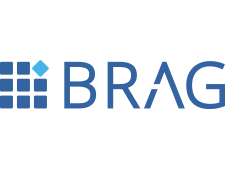CIPC: Innovating and Improving to Support Enterprise and Growth
Established by the Companies Act 2008, the Companies and Intellectual Property Commission (CIPC) is a vital agency of the Department of Trade and Industry in South Africa, coming into effect in May 2011. A dual office integral to the registration of companies, co-operatives, and intellectual property rights, CIPC seamlessly transitioned to not only maintain but improve standards and turnaround times as the pandemic took hold, with a policy of ceaseless innovation at the core of its efficacy.
While they may not necessarily even be aware of it, every individual who has registered a company name in South Africa has been dealing with the Companies and Intellectual Property Commission (CIPC) right from the inception of the nascent business.
Created in May 2011 from the merger of Companies and Intellectual Property Registration Office (CIPRO) and the Office of Company and Intellectual Property Enforcement (OCIPE), since its formation CIPC has undergone a sustained and rapid transformation in order to improve its service delivery, and to allow it to now contribute in a most meaningful fashion to South Africa’s overall developmental and economic needs.
A swift metamorphosis has been required, from its baseline as an administrative organisation with little or no regulatory focus, operating an almost exclusively manual, paper-based process at risk of errors and lost documents and reliant upon an outdated and unreliable ICT infrastructure and ICT governance.
CIPC’s great strides have expedited the modernisation of the organisation to bring it in line with, and exceed, current standards. Upgrading infrastructure and introducing new and improved online services has completely overhauled and remodelled the full scope of processes: from company registration, name reservations, annual returns and director and member changes to financial year-end changes, address changes, as well as trademark, patent, design, and copyright in film applications.
FAR-REACHING REMIT
Commissioner Rory Voller informs Enterprise Africa of CIPC’s inception and primary functions, unpacking an institution comprising over 500 staff with an annual budget of around R700 million, as broad and multifaceted as it is complex and intricate. “We have a dual function of registering companies, and registering intellectual property rights,” he delineates firstly. “Beyond the registration of companies, however, I also deal with issues surrounding patents, copyright, trademarks and industrial designs.
“There are still some jurisdictions which have these two registries as separate offices, whereas in South Africa the decision was taken to combine them, coming about as the result of a major amendment to the Companies Act just over a decade ago,” Voller explains. “In South Africa there was a wholesale overhaul of its company law, and which resulted in the implementation of various regulation agencies. One of these was the Companies and Intellectual Properties Commission, previously the Companies and Intellectual Property Registration Office.
“Behind these major changes was a shift away from the office merely being one of an administrative nature, to become a regulator of various pieces of legislation under corporate law and international property law. Beyond the scope of being the registrar of various domains and aspects of corporate law, we are also very much involved and entrenched in the work of improving corporate governance in South Africa, as well as dealing with the effective enforcement of the legislation under our purview.”
CIPC plays a key role in ensuring the integrity of the country’s company registration system, underpinning a growing economy, but this is always expanding, Voller furthers. “Our regulatory role has evolved to the extent that we are now, too, very much responsible for looking closely at financial reporting standards in the country, by ensuring that we comply with international reporting levels, while reviewing and monitoring compliance with annual financial statements as lodged with us at CIPC.”
CIPC’s role’s being twofold gives it a scope far beyond company registration, Voller is at pains to transmit, across myriad aspects of regulation and enforcement. “We have a heavy involvement in the area of international property enforcement, and play the coordinating role when it comes to dealing with anti-piracy and anti-counterfeiting activities,” he says.
“We bring together enforcement and prosecuting agencies together with the rights holders whenever fake merchandise is being sold or advertised, and also have act in an educational capacity towards prosecuting authorities and the police and customs services. We have established ourselves as a substantial, sizeable public entity within government.”
INNOVATION, AUTOMATION, DIGITISATION
While the pandemic wreaked havoc for so many organisations, CIPC found itself ahead of the curve and extremely well-placed to continue in a fashion as close to normal as could be hoped; it even brought the chance to re-evaluate and institute a number of impactful changes, Voller unravels. “Some of our most important work is in the space of massive education and awareness activities,” he describes firstly, “and one lasting ramification of the pandemic is that it pushed us into the realm of online webinars, allowing us to reach a far greater spread of people. This is something we now have no intention of deviating away from.
“When the move came towards telecommuting and working from home it was a very smooth adaptation for us, as this was a road down which CIPC had been travelling for many years,” he explains. “We had the infrastructure already here which staff were accustomed to using every day, which facilitated the move offsite and enabled them to continue seamlessly to register companies and deal effectively with every one of our responsibilities.
“Our enforcement activity took something of a hit during the period,” Voller concedes, “as so much of it is required to be meeting-based, or to bring parties together in mediation and arbitration when dealing with complaints.”
The strain on CIPC’s regulatory role that very much temporary, however, lasting only around six months as it very quickly adapted in typically innovative fashion. “Our service delivery standards surrounding the processing of applications were unaffected throughout,” he states. “We must register a company within one day, for example; we didn’t deviate once from this strict turnaround time.
“It really helped that the majority of our work has been done online for many years,” Voller stresses, “and CIPC is a highly automated environment exemplified by our range of e-services but arguably best by our flagship product BizPortal, one of our major success stories.” Developed by CIPC, the platform is designed to offer company registration and related services in a simple, seamless, and digital way, in response to the quest to improve the ease of starting a business in South Africa.
“It exists to bring together a multitude of services and departments into a single portal so that the entrepreneur is able to start a company and access a gamut of services in a single location,” Voller outlines. “We have also brought in private sector partners, to enable people to apply for business banks accounts, for example, or to access the domain authority of South Africa if starting a website.
“We are proud of the fact that BizPortal was developed entirely in-house,” he continues, “and such has been its success that it has featured on two occasions in state of the nation addresses by the President, in the context of having helped to further the growth and ease of doing business within South Africa, while reducing the bureaucracy and red tape by having everything in one place.” The turnaround time of starting a business now averages a startling 15 minutes.
“It has taken us a long time to reach this point, but the whole idea with BizPortal was that functionality would increase year-on-year and it would host an ever-greater breadth of services,” Voller rounds off, with Google SA is the latest to join and offer small business owners access to a range of its own services through the platform.
510,000 new businesses were registered in 2021, the most that has ever been recorded in a single year, so this ethos of innovating wherever every possible element will allow CIPC to deliver even greater efficiencies and service. “I have worked hard to instil a culture of continuous improvement within the organisation,” Voller enthuses, “so pandemic or not, we always look to innovate.”
“We have used digital technologies and partnerships to become a modern, world-class regulator of businesses and intellectual property rights, and through being agile, adaptive and high-performing we will seek to make an increasingly important strategic contribution towards South Africa’s enterprise, competitiveness and growth.”




